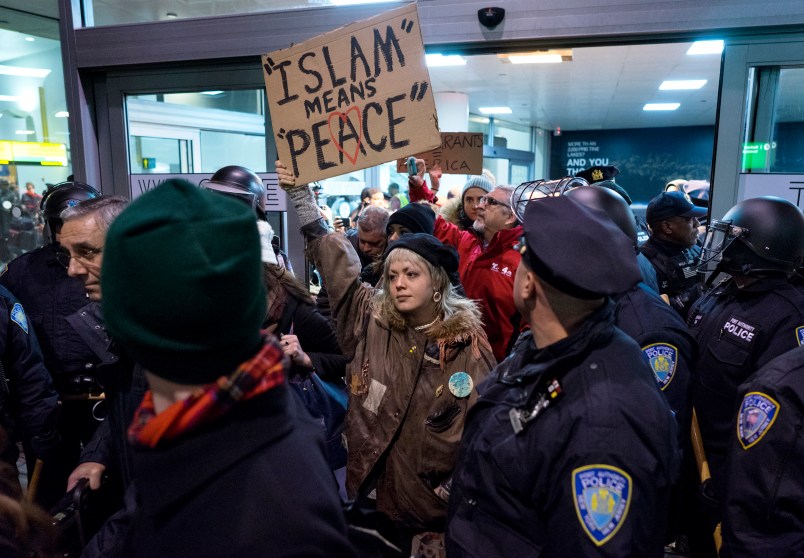SEATTLE (AP) — A lawsuit by Washington state and Minnesota challenging President Donald Trump’s travel ban will proceed as an appellate court considers a preliminary injunction in the case, a federal judge ruled Monday in Seattle.
The Justice Department had wanted to put the case on hold while the 9th U.S. Circuit Court of Appeals decides whether a larger, 11-judge panel will review a government request to allow the ban.
But U.S. District Judge James Robart, who previously issued a temporary restraining order halting the ban, said the lawsuit can go forward. The states said that process wouldn’t interfere with review by appellate courts.
Robart directed both sides to prepare for their arguments on whether Trump’s travel ban should be permanently blocked.
A three-judge federal appeals court panel last week refused to toss out the injunction and reinstate the travel ban. The panel unanimously rejected the administration’s claim of presidential authority in the matter.
Washington and Minnesota argued that formal evidence gathering should begin immediately in the case.
“Given the gravity of the states’ constitutional allegations, defendants’ stated national security concerns and the public interests at stake, the states respectfully submit that discovery should proceed without delay,” the state lawyers said in a legal brief.
Michelle Bennett, a Justice Department lawyer, told Robart there was no basis for speeding up the process, arguing the states are not being harmed because there’s a temporary injunction in place.
She asked Robart to stick with a previous schedule that gives the government until April 3 to file a response to the states’ complaint. Robart said he was “surprised” by that statement, since the president had said he wants to “see you in court.”
After the 9th Circuit panel ruled against the Justice Department, Trump sent out a tweet saying, “SEE YOU IN COURT, THE SECURITY OF OUR NATION IS AT STAKE!”
Robart said there is a “very sensitive time issue” in the case and he wasn’t prepared to slow it down.
Last week, the three-judge appellate panel sided with Washington and Minnesota, which say the ban illegally targets Muslims. Justice Department lawyers say it is intended to prevent terrorism and can’t be second-guessed by courts.
Trump’s ban temporarily suspended the nation’s refugee program and immigration from Iran, Iraq, Libya, Somalia, Syria, Sudan and Yemen — nations that have sparked terrorism concerns.
In deciding whether to put Trump’s order on hold, the three-judge panel said the administration presented no evidence that any foreigner from the seven countries was responsible for a terrorist attack in the U.S.
Trump’s initial executive order sparked protests nationwide and confusion at airports as some travelers were detained.
Copyright 2017 The Associated Press. All rights reserved. This material may not be published, broadcast, rewritten or redistributed.



